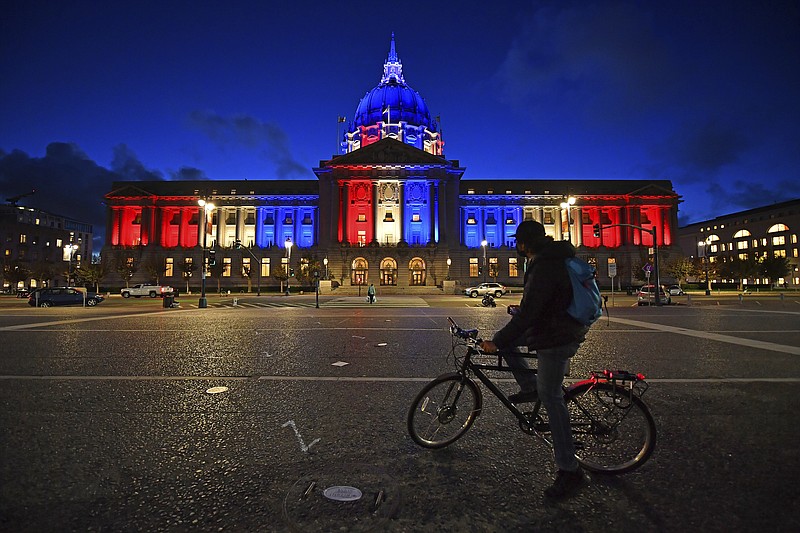WASHINGTON -- As Congress begins debate this week on sweeping voting and ethics legislation, Democrats and Republicans can agree on one thing: If signed into law, it would usher in the biggest overhaul of U.S. elections law in at least a generation.
House Resolution 1, Democrats' 791-page bill, would touch virtually every aspect of the electoral process -- striking down hurdles to voting erected in the name of election security, curbing partisan gerrymandering and curtailing the influence of big money in politics.
Republicans see those very measures as threats that would both limit the power of states to conduct elections and ultimately benefit Democrats, notably with higher turnout among minority voters.
The stakes are prodigious, with control of Congress and the fate of President Joe Biden's legislative agenda in the balance. But at its core, a more foundational principle of American democracy is at play: access to the ballot.
"This goes above partisan interests. The vote is at the heart of our democratic system of government," said Fred Wertheimer, president of the nonpartisan good government organization Democracy 21. "That's the battleground. And everyone knows it."
Barriers to voting are as old as the country, but in more recent history they have come in the form of voter ID laws and other restrictions that are up for debate in statehouses across the country.
Rep. John Sarbanes, D-Md., who sponsored the bill, said that outside of Congress "these aren't controversial reforms." Much of it, he noted, was derived from the recommendations of bipartisan commissions.
Yet to many Republicans, it amounts to an unwarranted federal intrusion into a process that states should control.
"It imposes from Washington, D.C., a one-size-fits-all regulatory scheme on each state," Rep. Tom Cole, R-Okla., said Monday during a hearing on the bill. "What's worse, it does this even though states have been traditionally allowed to generally run elections however they see fit."
Citing Congress' constitutional authority over federal elections, Democrats say national rules are needed to make voting more uniform, accessible and fair. The bill would mandate early voting, same-day registration and other long-sought changes that Republicans reject.
It would also require so-called dark money political groups to disclose anonymous donors, create reporting requirements for online political ads and appropriate nearly $2 billion for election infrastructure upgrades. Future presidents would be obligated to disclose their tax returns, which former President Donald Trump refused to do.
Debate over the bill comes at a critical moment, particularly for Democrats.
Dozens of Republican-controlled state legislatures are pushing bills that would make it more difficult to vote. Democrats argue this would disproportionately hit low-income voters, or those of color, who are critical constituencies for their party.
The U.S. is also on the cusp of a once-in-a-decade redrawing of congressional districts, a highly partisan affair that is typically controlled by state legislatures. With Republicans controlling the majority of statehouses the process alone could help the GOP win enough seats to recapture the House. The Democratic bill would instead require that the boundaries be drawn by independent commissions.
Democrats say their aim is to make it easier for more people to vote, regardless of partisan affiliation. And they counter that Republican objections are based more in preserving their own power by hindering minorities from voting than a principled opposition.
"The anti-democratic forces in the Republican Party have focused their energy on peddling unwarranted and expensive voter restriction measures," said Stacey Abrams, who narrowly lost her 2018 Georgia bid to become the first Black female governor in U.S. history. "We all have a right to take our seat at the table and our place at the ballot box."
Information for this article was contributed by Jill Colvin of The Associated Press.
